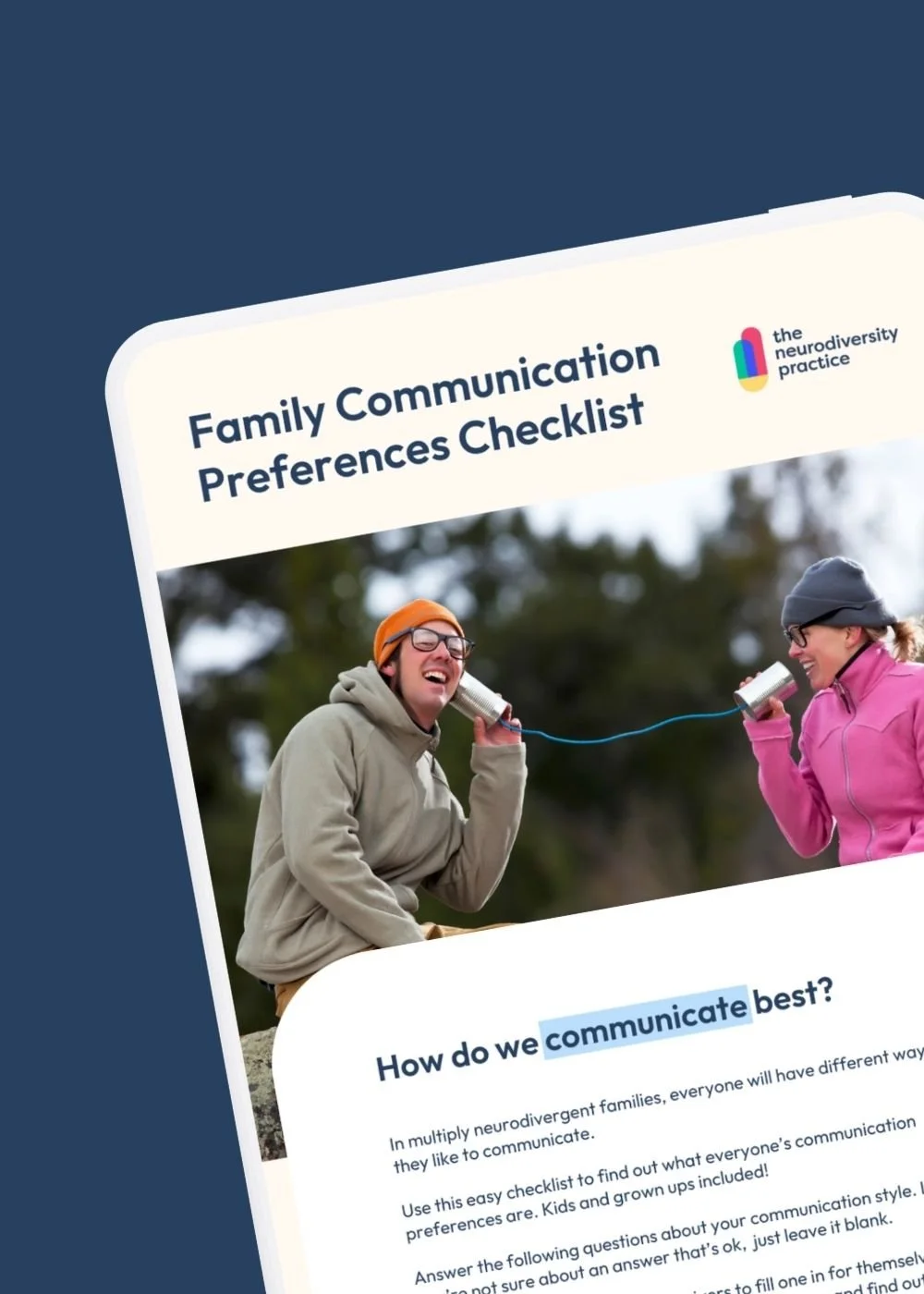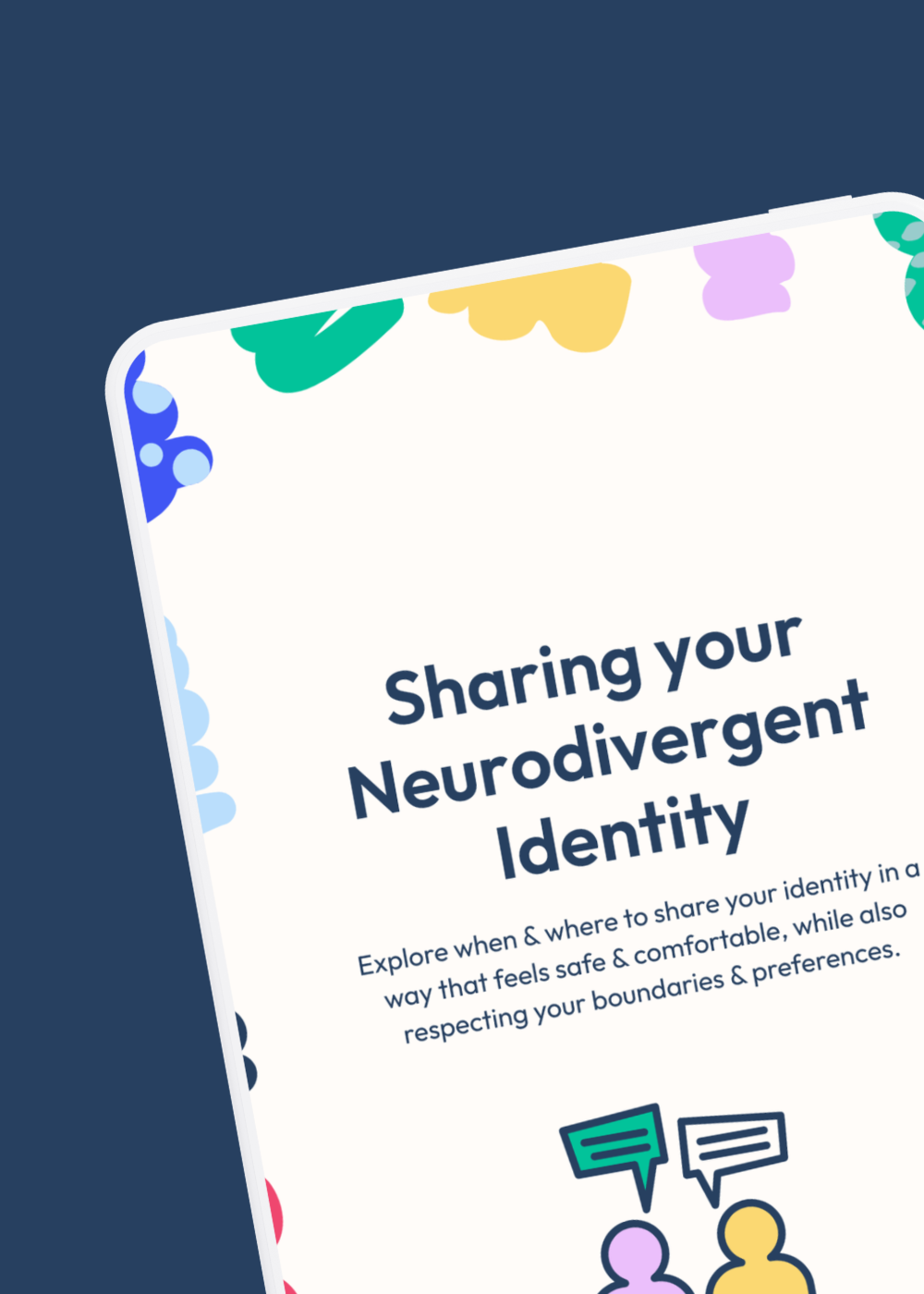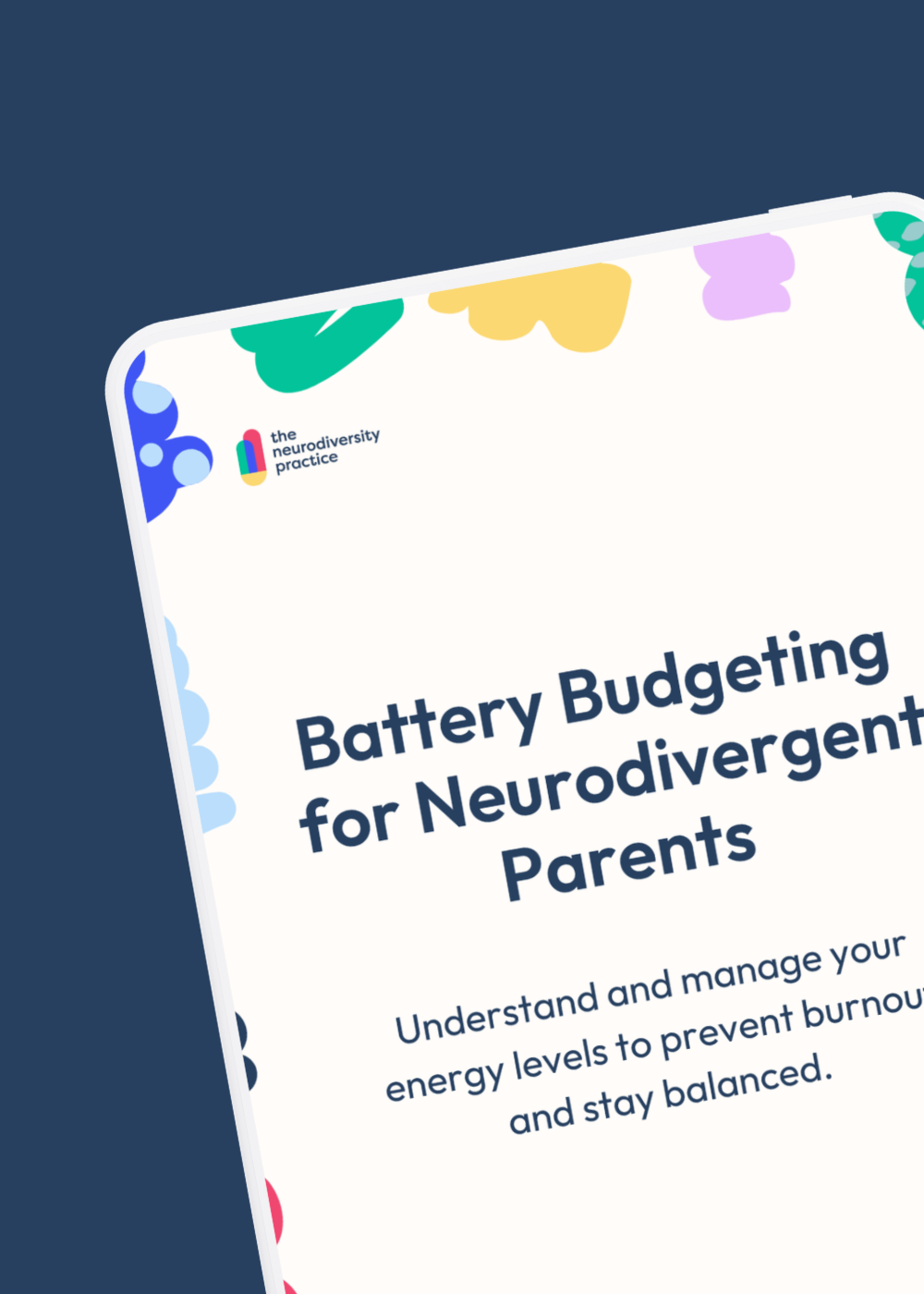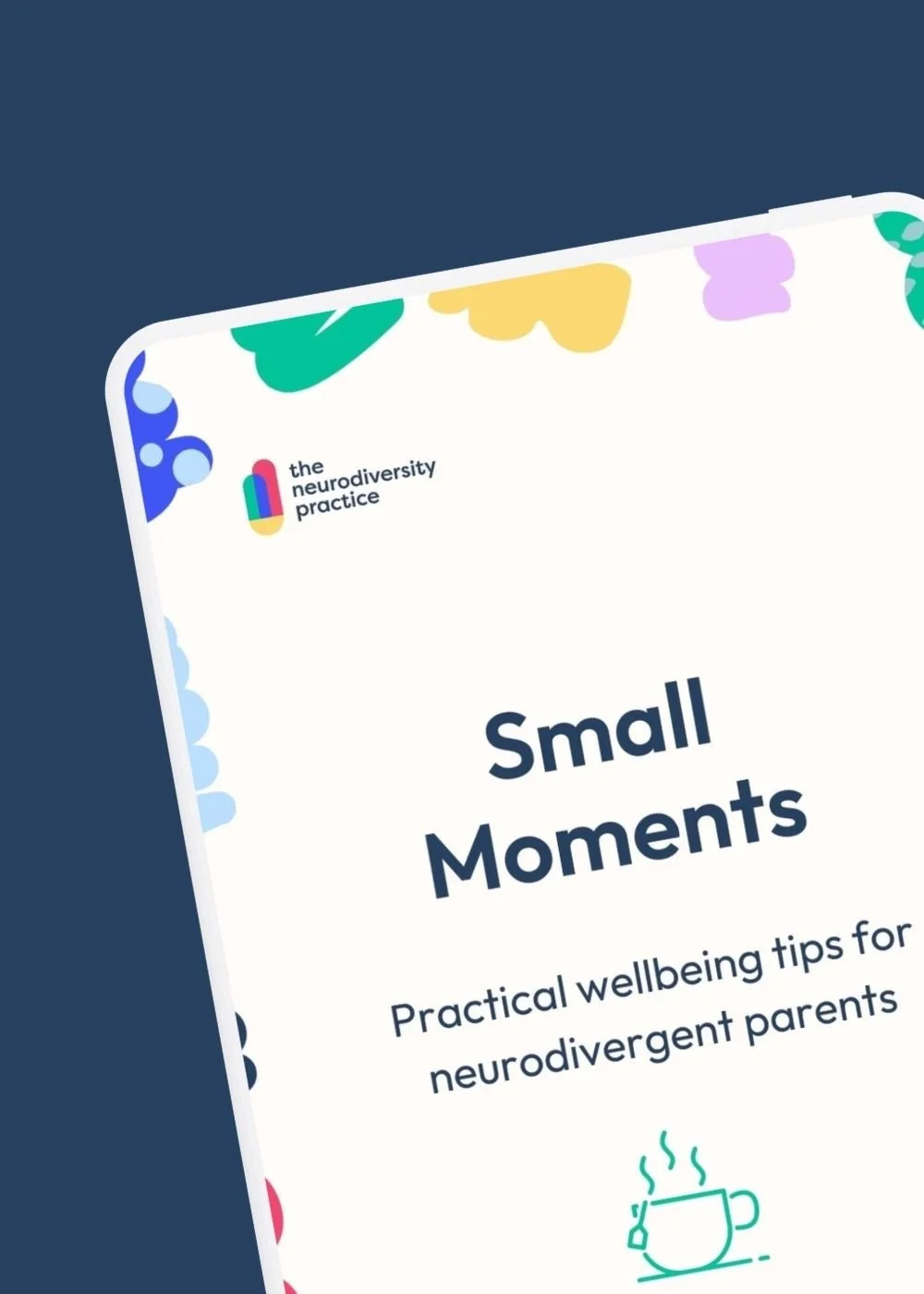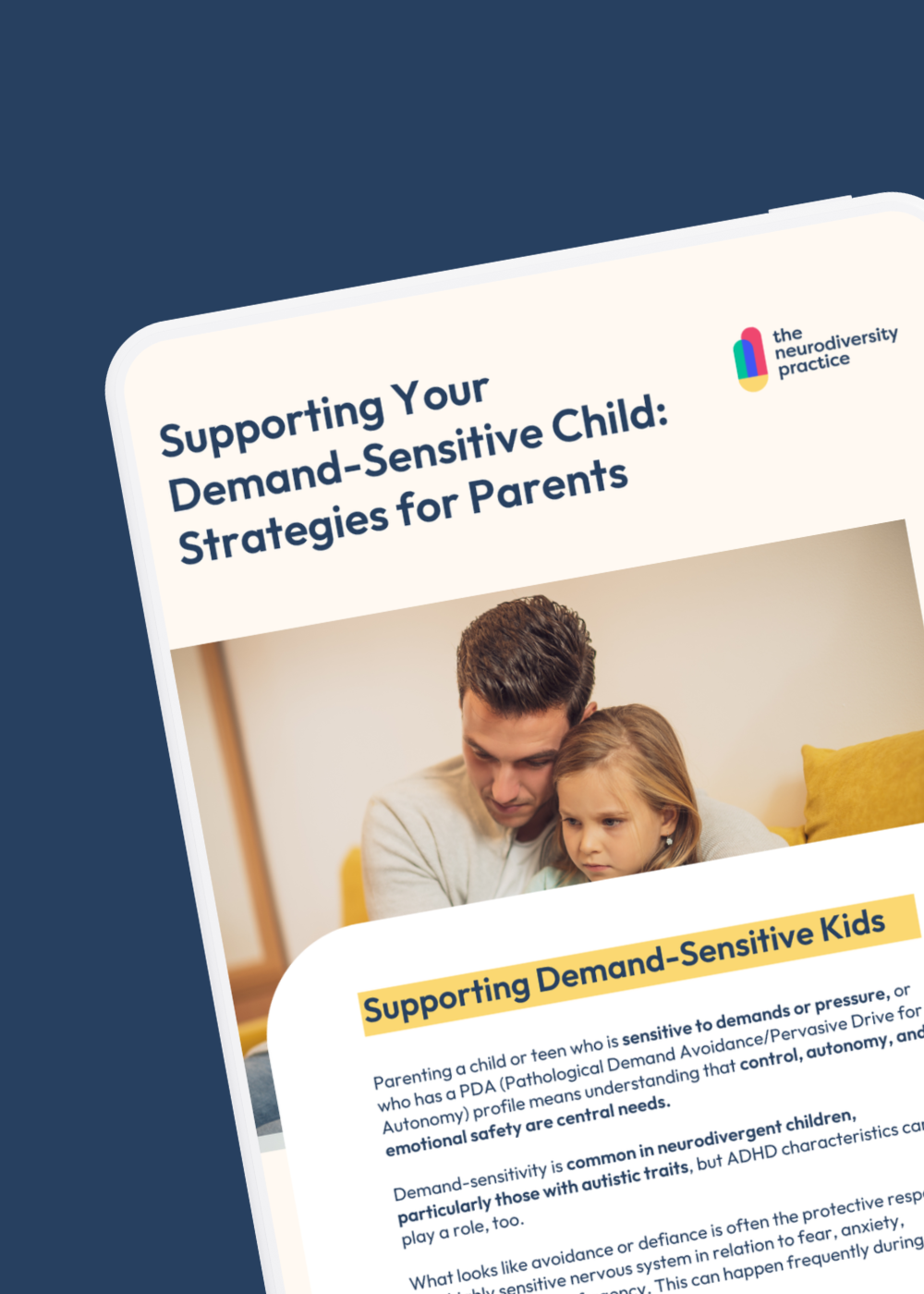 Image 1 of 1
Image 1 of 1


Make Yourself Heard: Assertive Communication Skills for Neurodivergent Parents
Neurodivergent people may find communicating assertively with others - partners, family members, colleagues, or teachers, for example - challenging at times. This can be for a variety of reasons, including difficulty reading others or knowing what is expected, rejection sensitivity, processing speed and verbal fluency challenges, alexithymia (difficulties understanding emotions), differences in communication preferences and styles, past traumas, and many other reasons.
However, being assertive can be even more important as a neurodivergent parent. We may need to advocate for ourselves and our children to get our needs met; we may need to share our identities and diagnoses at work or with family; we may need to have productive conversations with our partners about supporting each other.
In this guide, we share information and strategies that can help you improve your communication skills, including common traps to avoid and our 4-step assertive communication process.
Neurodivergent people may find communicating assertively with others - partners, family members, colleagues, or teachers, for example - challenging at times. This can be for a variety of reasons, including difficulty reading others or knowing what is expected, rejection sensitivity, processing speed and verbal fluency challenges, alexithymia (difficulties understanding emotions), differences in communication preferences and styles, past traumas, and many other reasons.
However, being assertive can be even more important as a neurodivergent parent. We may need to advocate for ourselves and our children to get our needs met; we may need to share our identities and diagnoses at work or with family; we may need to have productive conversations with our partners about supporting each other.
In this guide, we share information and strategies that can help you improve your communication skills, including common traps to avoid and our 4-step assertive communication process.

